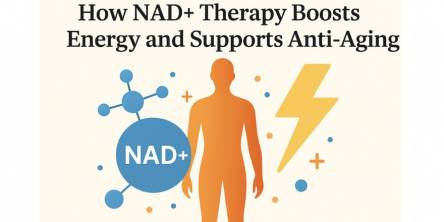The Importance of Individualized Treatment Plans in Addiction Recovery

Addiction, a complex and multifaceted condition, affects individuals in uniquely personal ways. The journey towards recovery is no less individualized, requiring treatment plans tailored to each person's specific needs, history, and circumstances. This bespoke approach to addiction treatment is critical for effective and sustainable recovery.
Understanding the Individual Nature of Addiction
Addiction can stem from a myriad of sources - genetic predispositions, environmental influences, traumatic experiences, or co-occurring mental health disorders. This diversity necessitates a treatment approach that is as unique as the individual experiencing it. A one-size-fits-all method falls short in addressing the nuanced needs of each person. For instance, while one individual might benefit from medication-assisted treatment (MAT), another might find more success with cognitive-behavioral therapy (CBT) or dialectical behavior therapy (DBT).
Read more: Why is Inpatient Rehabilitation Important?
Crafting the Individualized Treatment Plan
The first step in creating an effective treatment plan is a comprehensive assessment. This assessment should cover the full spectrum of the individual's physical, psychological, social, and, if applicable, spiritual health. By understanding the whole person, healthcare professionals can design a treatment plan that not only addresses the addiction but also its underlying causes and co-occurring conditions.
For example, someone with a history of trauma might need trauma-informed therapy alongside addiction treatment. Similarly, a person with a co-occurring disorder like depression or anxiety might require integrated treatment for both the addiction and the mental health condition. The Substance Abuse and Mental Health Services Administration (SAMHSA) offers a wealth of information on integrated treatment and its importance in recovery.
The Role of Personalized Care in Long-term Recovery
Long-term recovery is more achievable when the treatment plan is tailored to the individual's life, responsibilities, and goals. This might include outpatient therapy for someone who needs to maintain employment or family commitments, or residential treatment for those requiring more intensive support. In this context, choosing the right treatment facility becomes crucial. A center that offers a range of therapies and support systems, like a drug rehab, can be particularly beneficial.
Adjusting the Plan as Needed
Recovery is not a linear process; it involves ongoing evaluation and adaptation. As individuals progress, their needs can change, necessitating adjustments to their treatment plans. Regular check-ins and open communication with healthcare providers ensure that the plan evolves alongside the individual's recovery journey.
Incorporating Holistic and Supportive Approaches
Holistic approaches that include lifestyle changes, such as diet and exercise, mindfulness practices, or creative therapies, can enhance recovery by improving overall well-being. Additionally, support from peers, family, and community groups plays a vital role. These support systems provide a network of understanding, accountability, and encouragement, essential components of successful recovery.
Navigating the Path to Recovery Together
Your journey to recovery is yours alone, but you don't have to walk it alone. Understanding the importance of individualized treatment plans is the first step. If you or a loved one is struggling with addiction, remember that help is available, and recovery is possible. With the right support and a treatment plan tailored to your needs, you can reclaim your life from addiction.
Personalized Recovery: A Unique Path
Recovery from addiction is an individual journey, and the key to success lies in crafting tailored treatment plans. Addiction affects each person uniquely, stemming from genetic factors, environmental influences, trauma, or co-occurring mental health issues. Therefore, a one-size-fits-all approach falls short.
A comprehensive assessment is the initial step to create an effective treatment plan. It should encompass physical, psychological, social, and, when relevant, spiritual aspects. Understanding the whole person allows healthcare professionals to design a plan that addresses the addiction and its underlying causes.
As recovery is not a linear process, adjustments to the treatment plan are often necessary. Holistic approaches and support from peers, family, and community groups are vital in enhancing well-being and fostering a successful recovery journey.
Conclusion
The path to recovery from addiction is deeply personal, and the treatment must reflect this individuality. An individualized treatment plan, attentively crafted and regularly adjusted, offers the best chance for effective and lasting recovery. It recognizes and respects the unique challenges, strengths, and needs of each person, providing a foundation for a healthier, substance-free future.
Similar Articles
Burnout in the healthcare environment is a significant and growing crisis.
NAD+ therapy restores cellular energy, enhances metabolism, and promotes anti-aging by supporting DNA repair and improved overall vitality.
Seasonal Affective Disorder (SAD) is a type of depression linked to seasonal changes, most commonly seen during the late fall and winter months when sunlight exposure decreases
Enhance sleep comfort and support with a mattress topper queen. Discover how the right topper improves pressure relief, temperature control, and rest.
If your mind refuses to be quiet the moment your head touches the pillow, welcome to the club. Overthinking at night has silently become nearly synonymous with modern forms of insomnia.
Discover how longevity clinics use key biomarkers to assess ageing, improve health, and guide personalized wellness strategies for a longer, healthier life.
Halitosis, sometimes known as foul breath, affects millions of individuals worldwide and can cause humiliation, influencing everyday interactions and confidence.
In the modern world, maintaining good health often feels like a constant challenge. Between busy lifestyles, sedentary habits, and lack of motivation, many people find it difficult to stay consistent with exercise, diet, or wellness practices.
Learn how UV toothbrush sanitizers use UV-C light to kill 99.9% of bacteria, viruses, and fungi—backed by science for better oral health.









